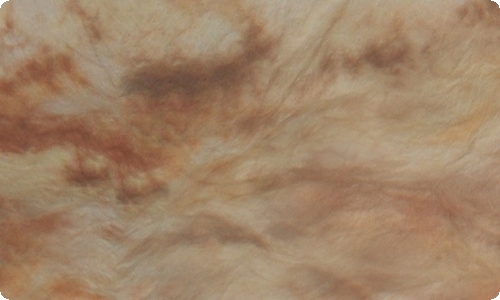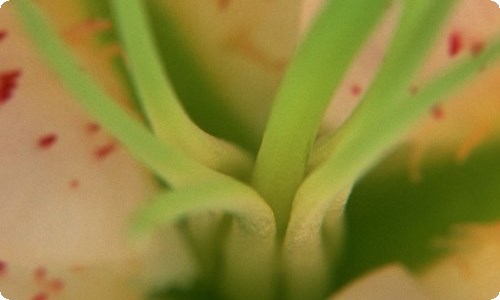
初一年级新年英语手抄报
手抄报内容、形式丰富多彩,版面编排和美化设计可以尽情发挥学生创造潜能,是深受学生喜爱的课外活动的形式,是培养学生学习兴趣,指导学生学习语文方法,培养学生综合能力的有效途径。下面是小编整理的初一年级新年英语手抄报,欢迎阅读。
初一年级新年英语手抄报
春节英文介绍:
The Spring Festival is the most important festival in China.People usually decorate the doors and windows with red papercuts.becouse red means good luck.People usually clean house too.becouse they want to sweep away bad luck.Children can get some new clothes or presents from their parents and grandparents.
On New Year's Eve,family always have a big dinner.Everybody are watch TV and talk.In the midnight,there usually fairworks.
On New Year's Day,people usually put on their new clothes and visit their femily and friends.They usually say:"Happy New Year's Day."
The Spring Festival finishes at the Lantern Festival after two weeks.People usually eat a kind of rice dumpling called yuanxiao.It can take people good luck all the year round.
The Origin of Spring Festival
中国春节的`来历
The Spring Festival is now popularly known as the Spring Festival because it starts from the Begining of Spring (the first of the twenty-four terms in coodination with the changes of Nature). Its origin is too old to be traced. Several explanations are hanging around. All agree, however, that the word Nian, which in modern Chinese solely means "year", was originally the name of a monster beast that started to prey on people the night before the beginning of a new year.
One legend goes that the beast Nian had a very big mouth that would swallow a great many people with one bite. People were very scared. One day, an old man came to their rescue, offering to subdue Nian. To Nian he said, "I hear say that you are very capable, but can you swallow the other beasts of prey on earth instead of people who are by no means of your worthy opponents?" So, it did swallow many of the beasts of prey on earth that also harrassed people and their domestic animals from time to time.
After that, the old man disappeared riding the beast Nian. He turned out to be an immortal god. Now that Nian is gone and other beasts of prey are also scared into forests, people begin to enjoy their peaceful life. Before the old man left, he had told people to put up red paper decorations on their windows and doors at each year's end to scare away Nian in case it sneaked back again, because red is the color the beast feared the most.
From then on, the tradition of observing the conquest of Nian is carried on from generation to generation. The term "Guo Nian", which may mean "Survive the Nian" becomes today "Celebrate the (New) Year" as the word "guo" in Chinese having both the meaning of "pass-over" and "observe". The custom of putting up red paper and firing fire-crackers to scare away Nian should it have a chance to run loose is still around. However, people today have long forgotten why they are doing all this, except that they feel the color and the sound add to the excitement of the celebration.
春节常用英文
过年 Guo-nian; have the Spring Festival
对联 poetic couplet: two successive rhyming lines in poetry
春联 Spring Festival couplets
剪纸 paper-cuts
年画 New Year paintings
买年货 special purchases for the Spring Festival ; do Spring Festival shopping
敬酒 propose a toast
灯笼 lantern: a portable light
灯会 exhibit of lanterns
守岁 staying-up
拜年 pay New Year's call; give New Year's greetings; New Year's visit
禁忌 taboo
去晦气 get rid of the ill- fortune
祭祖宗 offer sacrifices to one's ancestors
压岁钱 gift money; money given to children as a lunar New Year gift
辞旧岁 bid farewell to the old year
扫房 spring cleaning; general house-cleaning
八宝饭 eight treasures rice pudding
糖果盘 candy tray
什锦糖 assorted candies - sweet and fortune
蜜冬瓜 candied winter melon - growth and good health
西瓜子 red melon seed - joy, happiness, truth and sincerity
金桔 cumquat - prosperity
糖莲子 candied lotus seed - many descendents to come
糖藕 candied lotus root - fulfilling love relationship
红枣 red dates - prosperity
花生糖 peanut candy - sweet
新年习俗的介绍英文版
农历新年,年年不同
Spring Festival falls on a different date every year. Chinese calendar is a combination of solar and lunar calendar. Spring Festival falls on second new moon after the winter solstice(冬至). Chinese calendar has a 12 year cycle and each year is named afteranimal. Chinese believe that every person resembles an animal and thisreflects their traits. Year 2006 was the Year of the Dog. People born on this date are said to be very loyal and trustworthy。
Spring Festival Celebrations
新年找乐,日日不同
Lot of excitement can be seen in the last 15 days of New Year celebrations. Every day has a special importance to it. Chinese ritualize and celebrate each day in a customary manner. Given below are the line wise celebrations of the New Year in China:
年初一:祭拜天地
Day1: People began their day by offering prayers and welcome the gods ofheaven and earth. Most of the people stay away from meat to ensurehealthy living。
年初二:狗狗过生日
Day 2:Successively, prayers are offer to their ancestors and other gods.Chinese are strict care-taker of dogs and feed them well. This is dayis considered to be the birthday of all dogs。
初三初四:走亲访友,媳妇回娘家
Day3 and 4: These are very important days for the families to keep uptheir relations. It calls for every son-in-law to pay respect to theirparents-in-law。
年初五:“破五”祭财神
Day5: According to the traditions, nobody visits friends and relativeshouses as it would bring bad omen. They stay back home to worship theGod of wealth. The day is called Po Woo。
年初六:百无禁忌,出门活动筋骨
Day6: On this day, people freely meet their near and dear ones and evenvisit nearby temples to pray for their well being and high spirits。
年初七:吃面条,祝长寿
Day 7: This is Chinese farmers' day. They display their backbreaking
produce. They also prepare a drink from seven different types ofvegetables. On this day, everybody eats noodles which is a symbol oflong life and fish representing success。
年初八:凌晨拜天公
Day8: It's an other day to be celebrated with the family and friends. Theyalso offer midnight prayers to Tian Gong, the God of Heaven。
年初九:玉皇大帝登场
Day 9: Prayers are offered to Jade Emperor。
初十、十一、十二、十三:大吃大喝,最后记得回归清淡
Days 10 to 13: From 10 to 12, people celebrate the days by having sumptuous dinner with the loved ones and the 13th day is left for a very light dinner to cleanse the system。
年十四:准备闹元宵
Day 14: People start preparing for the celebration of Lantern Festival to be held on next day。
年十五:吃元宵看灯火
Day 15: Since it is the first night to see full moon, people hang out colorful lanterns, eat glutinous rice balls and enjoy the day with their families。
中国春节传统英语介绍:
The tradition is to have different main courses everyday from the 1st day of the New Year to the 15th day of the New Year, from Jiao Zi (dumplings), noodles, spring rolls, sticky rice cakes, and Tang Yuan (stuffed rice balls). Besides culinary satisfaction, each food has a meaning as well: for instance, Jiao Zi looks like gold, implying a wealthy year ahead.
传统就是,从新年第一天开始直到正月十五,每天都要吃不同的主菜。从饺子、面条、春卷、年糕到汤圆。除了祭好五脏庙以外,每一种食物也有含义:比如饺子看起来就像金元宝,这意味来年的丰衣足食。
Besides eating, young people visit older family members and kids are blessed with a red pack of "lucky" money. And then, people gather and eat again (!), leading to a lot of advertisements about fitness right after the Spring Festival holiday.www.ryedu.net
除了吃以外,年轻人要去拜会家里的老人家,而小盆友们就有大把压岁钱拿。跟着,人们又聚在一起吃,所以节后中国就会出现很多减肥广告。
Happy Chinese New year!!!




